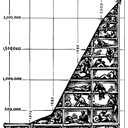
Liberal Punishment
Naomi Murakawa’s remarkable book The First Civil Right: How Liberals Built Prison America shows how, since the 1940s, liberals have provided legitimacy for the prison state.


Naomi Murakawa’s remarkable book The First Civil Right: How Liberals Built Prison America shows how, since the 1940s, liberals have provided legitimacy for the prison state.
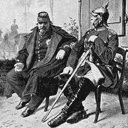
A longtime Republican Party insider explains why American dog-eat-dog capitalism is a disaster—even by conservatives’ own measures.

The Kurds of northern Syria are building an enclave of radical democracy and feminism in the middle of a devastating war—and beating back ISIS in the process. Why aren’t more leftists paying attention?

It is crucial to avoid treating the Charlie Hebdo attacks as shots in a war waged on France.

Following Wednesday’s nationwide protests for a living wage, Sarah and Michelle spoke with workers in New York and Atlanta about why they joined the Fight for $15 movement and what they hope it will achieve.

The ideological gap between Labour and the Tories is larger today than at any time in the past twenty years. But will the popularity of Labour’s social-democratic program prevail over lukewarm support for its leader—and the rise of the far right?
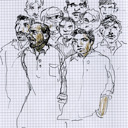
If there’s an engine that continues to draw millions of workers into the Persian Gulf’s draconian labor regime, it is the middlemen—the underground network of recruitment agents that reaches into every corner of rural South Asia, dangling the possibility of a better life before communities ravaged by neoliberalism.

Welcome to the main artery into creative or elite work—highly pressurized, poorly recompensed, sometimes exhilarating, more often menial. From the confluence of two grand movements in American history—the continued flight of women out of the home and into the workplace, and the rise of the “creative class”—the personal assistant is born.

From the late nineteenth century to our post-9/11 era, Americans have imagined South Asians simultaneously as exotic and barbaric, magical and menacing—to the detriment of those immigrants who are already most vulnerable.
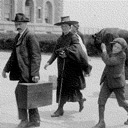
Featuring essays by Vivek Bald, Michelle Chen, Anjali Kamat, Mae Ngai, and more, our Spring issue examines the power of borders—real and imagined—and what they look like from the perspective of those they seek to exclude.

Following last week’s Supreme Court decision that UPS had unfairly denied a pregnant worker reasonable accommodations on the job, Belabored talked with Melissa Josephs, from Women Employed, an Illinois-based organization that successfully campaigned for a new state law to protect pregnant worker’s rights, and Latavia Johnson, a Walmart worker in Illinois.

Tim Shenk spoke with political scientist Wendy Brown about her new book, Undoing the Demos: Neoliberalism’s Stealth Revolution, and the political consequences of viewing the world as an enormous marketplace.

In its call for electoral democracy, the Umbrella movement sought to challenge China’s tight grip on Hong Kong politics. But Hong Kong’s protesters have yet to confront the deeper interests tying their future to that of the mainland.
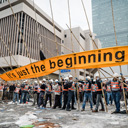
Occupy is serving as an open-source template for dissent, a transparent and adaptable playbook for organizing global movements with diverse aims and values.

There was the plantation boss, she remembered. A very decent man, really, even if it’s true there was a killing connected to him. It seems he had done it, she remembered, that was the connection. . . .
A short story.